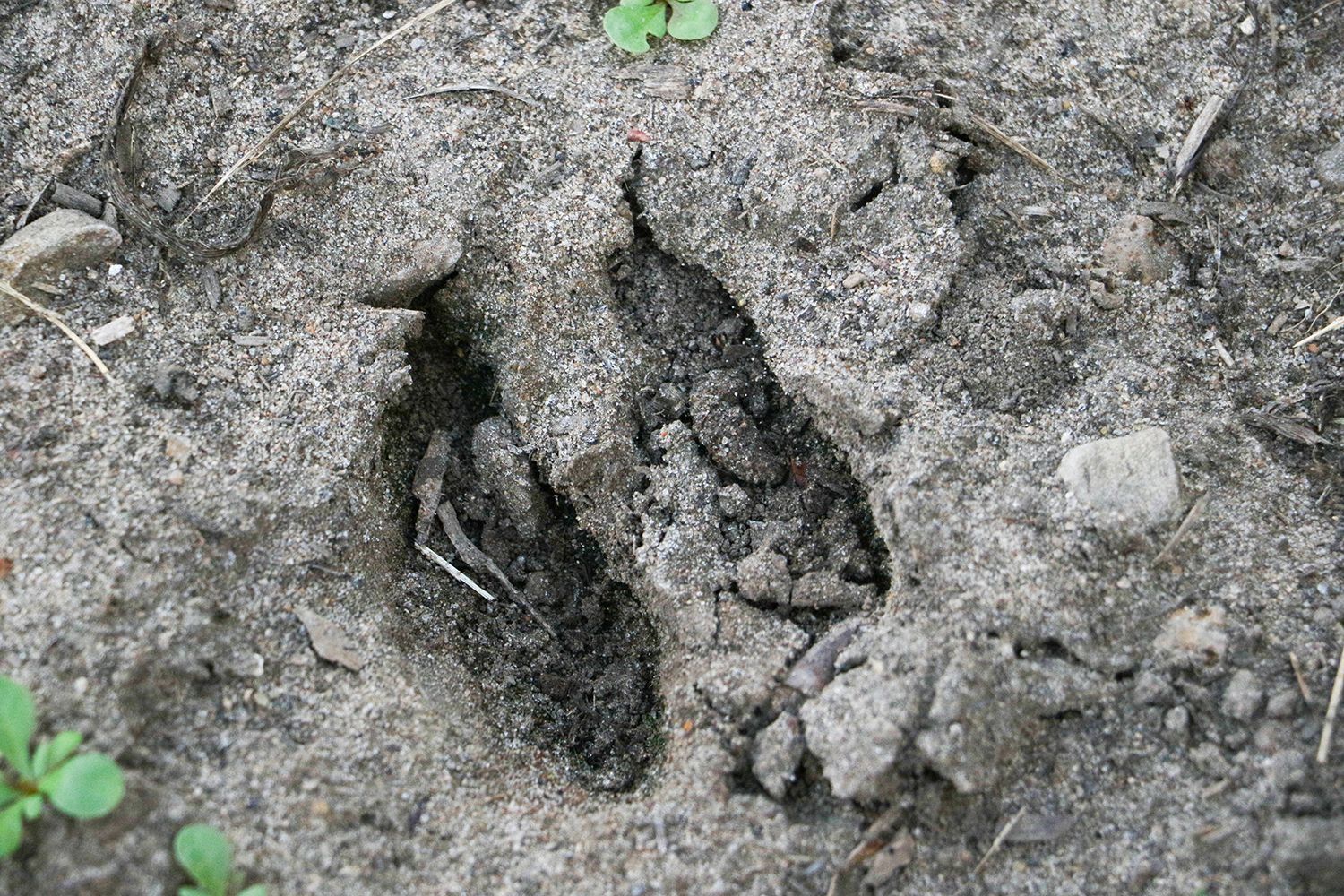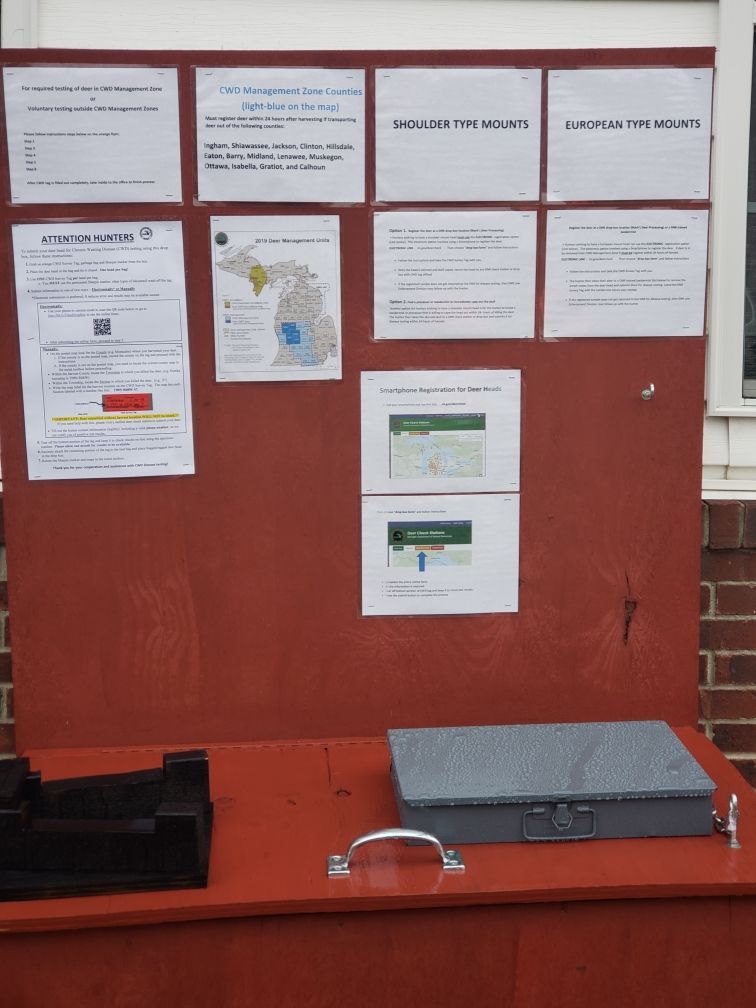Cooperative Coordinates CWD Drop Box
By: Morgan Jennings
Wildlife cooperatives have placed community engagement high on their priority list. Disease testing, education and awareness has been dominating much of the conversation in Michigan for the last few years. Hunter participation in reaching DNR set testing goals (by county) plays a significant role in understanding the transmission rate of CWD. Many cooperatives have taken it upon themselves to assist with outreach.

Jason Lewis, an avid Michigan outdoorsmen, is now a cooperative leader. The Three Echo Deer Cooperative of Southwest Livingston County has only been around since October 2019. They hit the ground running to determine what they could do to improve deer management in their immediate area and for fellow deer hunters in the community. Jason believes in the responsibility hunters carry for the state, for themselves and for future generations. He saw an opportunity to enhance community support for disease testing by adding another drop box to the area.
“I felt it was important to advocate for a local drop box following my experience last year. I work in Wayne County and live and hunt in Livingston County. When I killed a buck, I wanted to save the head for a European style mount but also wanted to submit a sample for CWD testing. Based on my review of the DNR-provided literature, it appeared that the most convenient option was going to be taking the deer to the Waterloo Rec Check Station and then to Pleasant Lake for removal of the lymph nodes to submit for testing. The bottom line – it took a bit of extra effort to complete.”
“I know there would be some individuals who would say, ‘I’m not going through all that trouble.’ Fast forward to this year and the development of the co-op. One of our primary objectives is to increase the number of samples submitted for Livingston County so that we had greater confidence in the absence of the disease from our local herd (hopefully). ”
As the cooperative leader, Jason reached out to me, the program coordinator, about how he should get started in this process. The first step was contacting the local biologists to pitch the idea, area of interest and wait for approval. Within a couple of days, we had a positive response from the DNR.
Jason believed that in order to promote the collection of a greater number of samples, it was necessary to make it easier to submit samples.
“The new drop box in Fowlerville does just that,” he said. “Furthermore, having Tom Stombaugh from Anything That Moves taxidermy (who is registered with the state to remove and submit lymph nodes) added to the DNR’s list as a more local option to support sample collection from bucks to be mounted, gives Livingston County hunters an easier, more convenient option to have their deer checked, no matter the size or sex.”

The drop box now available at Mark’s Deer Processing. PC: Mark Ives
So, will it help? Jason says he can’t say for sure but he recently bumped into a hunter at Brighton Recreation Area who had killed a buck that evening. During their conversation, Jason mentioned the new drop box at Mark’s Deer Processing and he was happy to hear about the option. This person inquired last year about having a deer tested and decided against doing so because it was too inconvenient due to the location. Jason said the hunter seemed much more motivated to take advantage of this more proximate collection site.
As Jason said, “I count that as a small victory!”
The Three Echo Deer Cooperative is not the first to request and receive a drop box in their local area but is certainly the most recent. Thank you to the DNR biologists that helped make this possible – Julie Oakes and Dennis Tison. Their timely responses and effort made this an easy task.
Thank you to all hunters participating in disease testing. If you are interested in finding the closest drop box or check station to you, please click HERE . For further questions please contact me at mjennings@mucc.org.
A note from Jason ~
“Morgan, thank you so much for coordinating the efforts between the DNR and Mark’s Deer Processing to give local hunters a convenient means of truly being deer management cooperators! I couldn’t have done it without you! A big thanks to Mark Ives, also, for his willingness to participate and being so easy to work with. Great guy!”
The post Cooperative Coordinates CWD Drop Box appeared first on Michigan United Conservation Clubs.
Recent Posts



